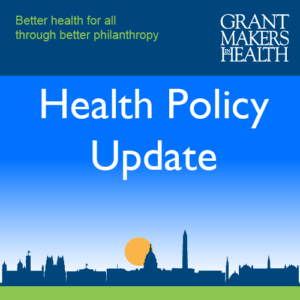Health Policy Update: April 17, 2025
In an effort to help our Funding Partners better understand the changing health policy landscape in the new administration and Congress, Grantmakers In Health (GIH) is expanding the GIH Health Policy Update newsletter to three issues per month. Working in collaboration with Leavitt Partners, a leading health care policy consultancy, we are adding new installments of the newsletter on the first and third Wednesdays of the month, while we will continue to partner with Trust for America’s Health on the installment released on the second Wednesday of the month.
Comparative Effectiveness Research: Informing Decisions and Improving Quality
Comparative effectiveness research (CER) is the study of methods to “prevent, diagnose, treat, and monitor a clinical condition or to improve the delivery of care” (IOM 2009). Its purpose is to assist consumers, clinicians, purchasers, and policymakers in making informed decisions that will improve health care at both the individual and population levels (IOM 2009).
2010 Terrance Keenan Award Acceptance Speech
Read about The Commonwealth Fund’s Dr. Mary Jane Koren’s 30 years of work to improve the quality of institutional long-term care, and be inspired by her willingness to take chances on innovation, revisit old ideas, and find treasure among the wreckage.
Improving Quality: Long-Term Vision and Incremental Change
Quality is one of the most pressing issues facing the health care system today, and foundations are using a variety of approaches to support quality improvement efforts at the local, state, and national levels, turning a cacophony of consumer voices into coherent, actionable work.
Rethinking Substance Use Disorders
Almost 1 in 10 individuals over age 12 has a problem with alcohol or drugs, making substance use disorders one of the most damaging and expensive health problems facing the United States today. Yet many of the specific issues surrounding substance use remain under the radar because of their controversial nature and the highly marginalized and vulnerable populations they often affect.
Join & Become a GIH Funding Partner Today!
Click here to learn more about becoming a GIH Funding Partner and joining the largest national network of health funders.

